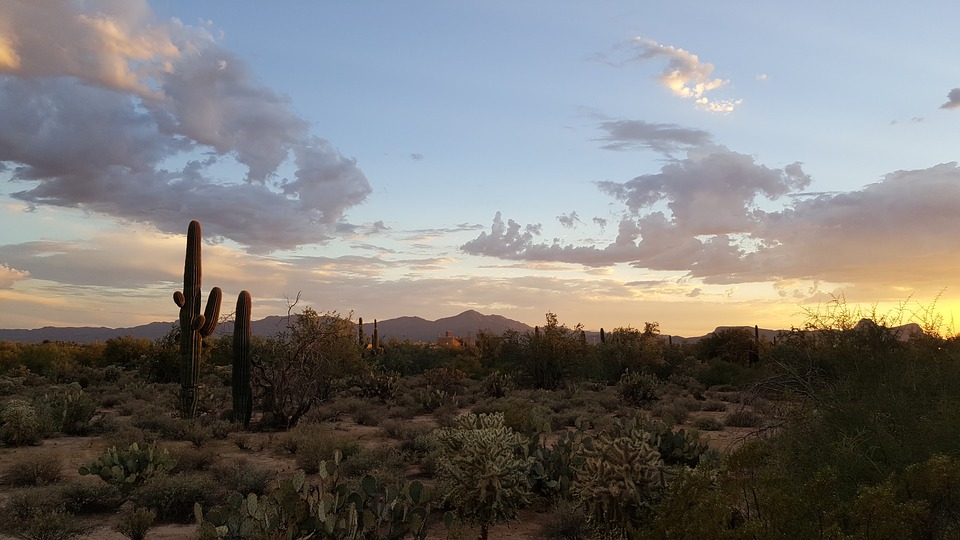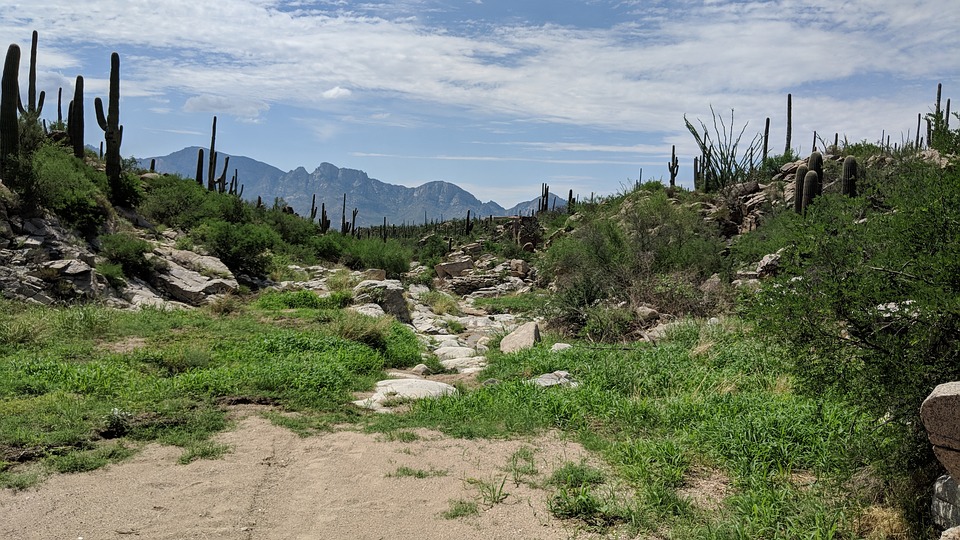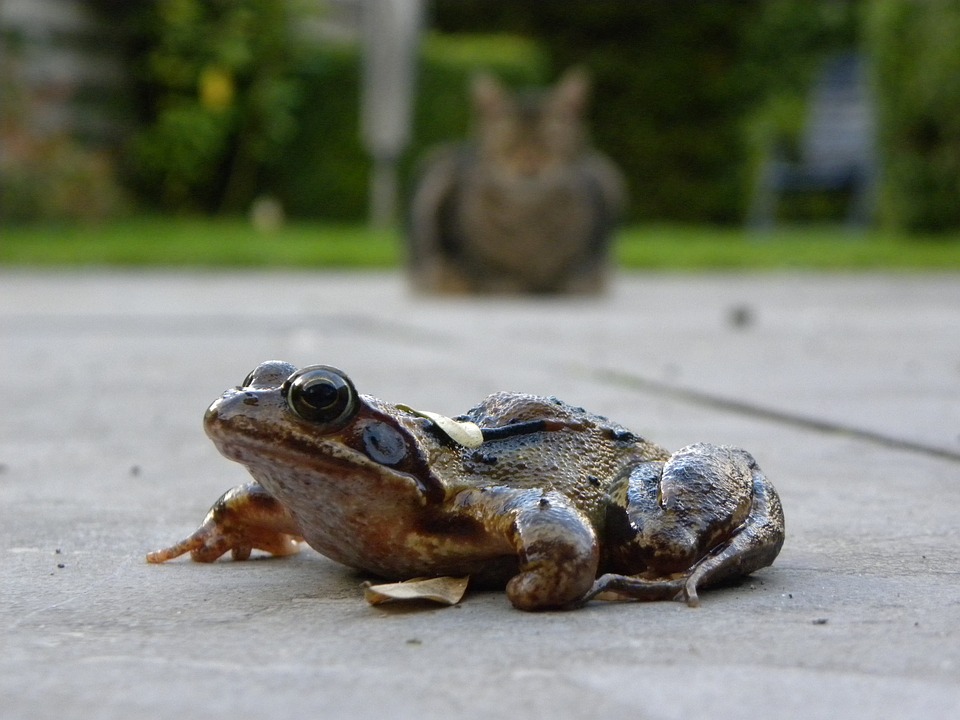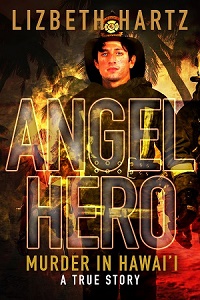The Ghost of El Tejano
The first time something otherworldly happened to me, I was four years old. Drawn like a magnet to a desert ironwood tree in Tucson, Arizona, I wrapped my little arms as far as they’d go around the big knobby trunk. I’ll never forget the energy like electricity slowly snaking through me. I felt so alive.
The second mystical event happened when I was eight years old, in a building in an industrial area. I don’t remember why I was sitting on the stairs, or where Mom was. Five or six small peelings from an orange lay sprinkled across the stairs. I knew, without a shadow of a doubt, that coins were hidden underneath the peels.
And they were. Which delighted me, the magic of knowing that.
But I still wonder about one experience. Was it paranormal or just coincidence? It happened in Tucson in 1967, the summer after my twin Patty and I turned sixteen.
My older sister Lynda told us about the legend of El Tejano, a Mexican bandit. She’d learned about him in her folklore class.
“He lived near Tucson,” Lynda said. “A Robin Hood type, he robbed from the rich and gave to poor Mexican peasants. Posses tried to trap him but he had the fastest horse and the steadiest hand of anyone alive. So he escaped until—“
“Until?” Patty echoed.
Lynda laughed. “His compadre, Carlos, betrayed him for a $10,000 reward. Carlos told the sheriff the location of El Tejano’s desert cabin, and the posse lay in wait for his return. El Tejano rode almost up to his cabin door when his stallion whinnied and bolted across the desert. The posse let off a volley of gunshots and, cursing, leaped on their horses and galloped after him. Later they found him dead on the ground, one of their bullets through his lungs. But no one found his treasure of gold and jewels. Legend says it lies buried in the desert near Catback Mountain.”

Legend also had it that the ghost of El Tejano still rode in the same desert area, which is ten miles or so southeast of Tucson. On a moonlit night folks have reported seeing his ghostly silhouette gleaming white atop his horse, keeping watch over his treasure. Venture too close and he’ll curse you with bad luck until you abandon your quest and go away.
Lynda’s motive in telling us the tale was so we’d drive out with her and her classmate George to Catback Mountain outside of Tucson. That way, both of them would get credit from their folklore class teacher for visiting the site of the legend. “Maybe we’ll get lucky and see the ghost,” Lynda speculated.
“Lucky?” Patty shivered. “More like cursed. Count me out.”
“I’d sort of like to see him standing all white and eerie,” I said.
Lynda said she would, too, but see him or not, what a great excuse for a cookout under the desert stars. That idea won Patty over, and we asked our 10-year-old brother, Mikey, to come along. We decided, if it wasn’t raining in the desert, we’d leave the next afternoon so we’d be home before 10 p.m., in time for Mom’s nightly phone call from California where she attended summer school.
The following bright and cloudless day, around 4:30 p.m., we headed out of town in our two clunkers; George’s rusty Dodge and our old Ford. George and I were cruising down Speedway when the steering wheel suddenly came off in his hands. I shrieked, “George! Do something!” His hands shook like Jell-O but, somehow, he managed to shove the steering wheel back on its column.
“Wow, I don’t believe this.” He laughed nervously.
I started giggling, too, and soon we were laughing uncontrollably. Later, when we stood around the campfire roasting weenies, everyone laughed at my imitation of George’s horrified expression.
“Lucky you. We drove miles across the desert and nothing exciting happened.” Mikey sounded disappointed.
“Yeah. I don’t see why Mom said not to drive on dirt roads,” Patty said.
Lit up by the red and purple sky, Catback Mountain’s two humps were thickly sprinkled with cacti. Wordlessly, we watched the landscape darken and stars pop out one by one. The saguaros, silhouetted against the twilight sky, looked like thousands of three-fingered hands pointing at the stars. The round, bright moon cast silver linings in the clouds racing by.
“Look,” Mikey said, pointing across the desert at two sets of headlights coming our way. We watched their slow progress, disappearing from sight as they drove down a deep desert arroyo, now visible again as they wound their way along the dirt roads. Police cars. We relaxed.
Four large men in blue uniforms walked up to our campfire. One with silver hair asked, “What are you kids doing out here?” and another searched the trunks and interiors of our cars.
“We’re looking for a ghost.” Patty giggled. Lynda told them about the legend and they smiled, thinking us a little odd, I imagine.
The senior officer warned us to keep the fire under control. “And if it rains,” he pointed a gnarled finger at a nearby arroyo, “Be careful of those washes.” The steep-sided gully looked like a dry riverbed, with steep dirt sides and a wide parched bottom barren of plant life.
“Why?” I asked.
“The ground’s too dry to absorb a heavy monsoon rain,” he said. “These gullies turn into rivers fast and the sides crumble.”
“We’ll be careful,” I promised.

The policemen weren’t gone five minutes before George discovered he had a flat tire.
“And me without a lug wrench,” George moaned. He borrowed ours, removed the tire, and then discovered his spare tire was also flat.
Patty, who always had a plan, glanced at the setting sun and offered, “I’ll drive to the closest gas station and get your tire patched before it’s completely dark.” Lynda rode along.
That left Mikey, George and me. We sat around the fire and listened to the car radio. Moonlight cast a soft light over the stark landscape. Except for round tumbleweeds, spidery creosote bushes, spiked prickly pear and saguaro cactuses, the desert was barren. Dirt, cracked and bleached by the sun, stretched for miles, flat except for deep gullies that ran through the land like dry rivers. Mikey switched the radio to a rock and roll station and started bee-bopping to the music.
“Better turn off the radio,” George said. “You’ll wear the battery down. All we need is for this car to die on us.”
Mikey frowned and clicked the radio off. I suggested, since he was reputed to be a hot dancer, that he do a rain dance. Soon he was whooping and stomping and the rest of us clapped and cheered him on. It started to rain, slowly at first, then harder, finally turning into a downpour. We raced to the car and huddled together, shivering in our wet clothes.
“See what you did!” I teased Mikey.
“Liz.” Mikey grabbed my arm. “I saw him. Beside that dying saguaro next to our campfire. Just now, when it started raining. He looked at me with these blood-red eyes and pointed his finger and—”
“Cut the bull,” George said. “This is no time—“
“You can say that again.” My nose pressed against the back window. “Look!”
We gasped. Below where we’d parked our car, water ran through the desert wash. If we didn’t move our car quickly we would be trapped above a raging river. George jumped out of the car, ran to the flat tire, and ran back with it. Mikey held it in place while George bolted the lugs back on, a slow process because the lug wrench was the wrong size to grab the lugs. Mikey and I watched the rust colored water in the wash raise to a foot, then two feet high. Then the tire was back on and the mud-covered boys slid into the front seat. George yelled, “Forward!” and plunged the car into the wash.
The car, propelled by the swirling river, started to careen downstream. “Steer for the side,” Mikey yelled. George shoved the steering wheel as far to the left as it would go. By some miracle the water pushed us to the left and a cactus and some deadwood halted our passage downstream.
We all hopped out and pushed, in water up to our knees, holding onto bumpers and doors so we wouldn’t get washed away ourselves. Finally we pushed the car above the water line and onto the bank. Exhausted, we sloshed back into the car.
We’d been playing Twenty Questions for about an hour when the rain stopped and Patty’s headlights appeared a few miles away. George blinked his headlights so Patty could see us. She blinked back. “Finally, some good luck,” he said.
Patty’s car wasn’t two hundred yards away when the horizontal headlights turned vertical. The four of us ran to the old Ford. It lay on its side, half buried in the mud. We pulled a hysterical, but unharmed, Patty out of the car. Lynda hugged her and said, “It’s okay, Patty. You’re alright.”
“It fell right out from under me!” Patty wailed. Eroded by the heavy rain, the dirt road had collapsed underneath the car. “Mom’s going to kill me!”
We tried pushing the car out, all of us grabbing onto bumpers and doors. Muscles stood out like taut knots on the boys’ arms. My shoulders ached. The car wouldn’t budge.
“At least there’s a bright spot,” Patty said, now calmer. “Let’s put George’s patched tire on his car and split.”
George tried and discovered, when he’d used our lug wrench the first time, the little grooves inside were stripped. It wouldn’t work at all.
Bill suggested that George drive his car out by himself, to avoid excess weight on the tire rim. “Find a gas station, have them change the tire, then come back for the rest of us.”
“And call a tow truck for our car,” Lynda added.
“Okay,” George said. “Sounds—“
A loud, wailing cry echoed across the desert, followed quickly by another. We all froze.
“Sounds like a wildcat,” Mikey said.
“And us without a gun,” George moaned.
“I’m scared!” I said.
“Quick! Everyone into George’s car,” Lynda said.
“It’ll ruin my rim,” George moaned.
“What choice do we have?” Lynda asked.
All five of us piled into George’s car. Forty-five minutes of snaking back and forth over dirt roads, listening to the flat tire thumping along, brought us to the paved road and to Sunset House, a rest home. We knocked on the rental office door.
A wrinkled man opened the door. “What you kids doing here?” he asked.
While Patty used his phone, Lynda told him about our adventures. When she got to the part about wildcats, he cackled.
“Them weren’t wildcats,” he said. “Ain’t no wildcats in these parts.”
“Oh? What were they then?” Lynda asked.
“They sound like wildcats, that’s for sure,” the man said. “That’s how they got their name. Them’s cat frogs.”
“Frogs?” George repeated. “Frogs?”
“Yep. Big ole frogs. Yell just like a wildcat. Look outside on the porch. Most likely you’ll see a couple hopping around.”
Sure enough, there were two football-sized frogs hopping slowly down the length of the porch. A chilling scream came from one of them.
“I ruined my rim for some stupid frogs?” George asked. I wanted to say something comforting but didn’t know what.

We had to wait several hours for the tow, which cost us $50. Luckily, between the seven of us, we managed to scrape the money together. We got home about one a.m. By then Mom, who’d been calling for three hours, was frantic, then angry when she found out we’d been driving on dirt roads. When Mom returned from California, we were grounded for a month.
Mikey insisted he’d seen the ghost but he was known to kid around. George and Patty called it a series of coincidences. Lynda and I decided we’d come too close to El Tejano’s treasure so he’d cursed us with bad luck. How else can you explain all our misfortunes?
Nowadays, when I visit Lynda in Tucson and lightning slashes the night like a bright white scar, I think of the ghost of El Tejano. If I listen carefully I hear, in the sudden pounding rain of a summer monsoon, the faint clomp, clomp, clomp of his phantom hooves. When the wind shrieks down Catback Mountain through valleys of giant saguaro cactuses, I wonder if it’s the wind or a death scream echoing through the night. Do the dry washes, suddenly swollen with churning water, continue to protect the bandit’s buried treasure from gold seekers?
Does El Tejano still ride?
